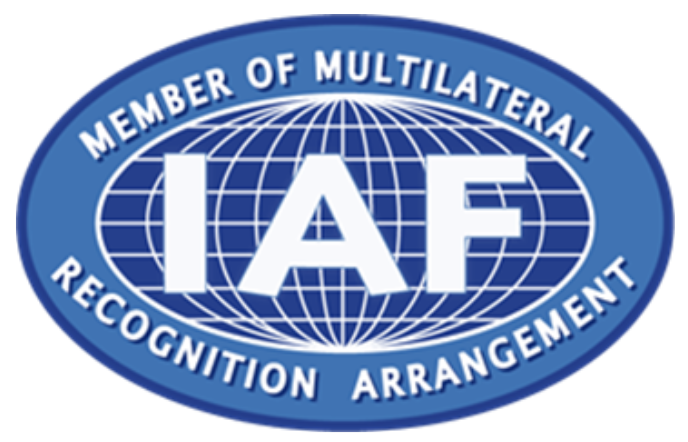Talk To Our Cyber Expert For Free.
SEBI Compliance Audit
Learn how Qunit services can help you to improve your Securities and Exchange Board of India compliance.





Overview : SEBI Compliance Audit Compliance
The Securities and Exchange Board of India (SEBI) is the regulatory body governing the securities market in India. SEBI compliance audit refers to the assessment and verification of compliance with SEBI regulations and guidelines by market participants such as listed companies, brokers, portfolio managers, and other entities operating in the securities market.
SEBI, the Securities and Exchange Board of India, has issued guidelines and circulars for the Cyber Security Audit to enhance security practices in the stock market, exchanges, depositories, and intermediaries. These guidelines aim to strengthen the integrity of trading facilities and protect against increasing cyber threats and attacks.
The entities involved in the Cyber Security and Resilience Framework audit include stockbrokers, depositories, wealth management firms, asset management companies, mutual funds, trustee companies, and the Association of Mutual Funds in India.
ISO 27001
What is ISO 27001?
ISO 27001 is a globally recognized security standard that provides a framework for establishing an effective Information Security Management System (ISMS). It is part of the ISO/IEC 27000 series of standards published by the International Organization for Standardization (ISO) and International Electrotechnical Commission (IEC).
The ISO 27001 standard focuses on technical risk management controls and helps organizations establish, implement, operate, monitor, review, maintain, and improve their ISMS. It takes a risk-based and technology-neutral approach, allowing organizations to tailor their security controls according to their specific risks and needs.
Rather than prescribing a fixed list of controls, ISO 27001 provides a checklist of measures to consider and offers best practice recommendations outlined in ISO 27002. This flexible approach enables organizations to implement controls that align with their unique security requirements.
Even if your organization is not pursuing full ISO 27001 certification, familiarizing yourself with the standard and its controls is essential for following security best practices. Understanding the guidelines can help ensure that your organization adopts effective security measures and safeguards sensitive information.
CONTROLS
ISO 27001 Annex A controls
- Risk Mitigation: Systematically identifying and assessing risks enables organizations to implement appropriate controls to mitigate those risks effectively.
- Compliance Assurance: Adhering to ISO/IEC 27001 requirements helps organizations demonstrate compliance with information security standards and regulatory obligations.
- Continual Improvement: The ongoing management process encourages organizations to continually assess and adapt their security controls to address new and emerging risks.
- Stakeholder Confidence: By effectively managing information security risks, organizations can inspire confidence in their customers, partners, and stakeholders, building trust and credibility.
ISO 27001 REQUIREMENTS
ISO/IEC 27001 requirements
ISO 27001 Annex A provides a comprehensive set of 114 best practice controls that organizations can choose from to build an effective Information Security Management System (ISMS). These controls are divided into 14 clauses, covering various aspects of information security.
It’s important to note that since the 2013 update of ISO 27001, these controls are not mandatory. Instead, they serve as guidance for organizations during their risk assessments, allowing them to select and justify the controls that are most relevant and meaningful for their specific context.
The 14 control clauses of ISO 27001 Annex A are as follows:
A.5 - Information security policies
A.6 - Organisation of information security
A.7 - Human resource security
A.8 - Asset management
A.9 - Access control
A.10 - Cryptography
A.11 - Physical and environmental security
A.12 - Operations security
A.13 - Communications security
A.14 - System development and maintenance
A.15 - Supplier relationships
A.16 - Information security incident management
A.17 - Business continuity management
A.18 - Compliance laws and policies
Get a quick quote
Benefits

Enhanced Risk Management

Continuous Improvement

Stakeholder Trust

Improved Security Posture

Regulatory Compliance
METHODOLOGY
Our Approach to SEBI Compliance Audit
- 01. Initial Assessment
- 02. Compliance Framework Evaluation
- 03. Risk Identification and Assessment
- 04. Compliance Testing
- 05. Gap Analysis and Remediation
- 06. Ongoing Monitoring and Support
We begin by conducting an initial assessment to understand the organization’s current security framework and identify any gaps or areas that require improvement. This helps us tailor our audit process to address specific compliance needs.
We evaluate the organization’s compliance framework against SEBI guidelines and circulars. This includes assessing policies, procedures, controls, and documentation related to information security, risk management, corporate governance, and investor protection.
We conduct a thorough risk identification and assessment process to identify potential vulnerabilities and risks within the organization’s systems and processes. This helps in prioritizing remediation efforts and implementing appropriate controls.
We perform detailed compliance testing to validate the implementation of security controls and adherence to SEBI guidelines. This includes reviewing technical configurations, access controls, data protection measures, incident response procedures, and other relevant areas.
Based on the findings from the compliance testing, we provide a comprehensive gap analysis report, highlighting areas of non-compliance and recommended remediation actions. We work closely with the organization to develop and implement an action plan to address the identified gaps.
We provide ongoing monitoring and support to ensure sustained compliance with SEBI requirements. This may include periodic audits, security assessments, training sessions, and updates on regulatory changes.
WHY US?
Why choose Qunit?
- Expertise and Experience
- In-depth threat analysis and remediation guidance
- Customized Approach
- Avg. >9/10 customer service, 95% retention rate
Frequently Asked Questions (FAQ) - SEBI Compliance Audit
Entities such as listed companies, brokers, portfolio managers, and other participants operating in the securities market are required to undergo a SEBI compliance audit.
The frequency of SEBI compliance audits may vary based on regulatory requirements and organizational policies. It is typically conducted annually or as per the specified timelines set by SEBI.
A SEBI compliance audit evaluates various aspects related to corporate governance, disclosure requirements, insider trading regulations, shareholding patterns, financial reporting, risk management, and investor grievance redressal mechanisms.
Qualified auditors or audit firms with expertise in securities laws and regulations conduct the SEBI compliance audit. They possess the necessary knowledge and experience to evaluate compliance with SEBI guidelines.
If non-compliance is identified during the SEBI compliance audit, organizations are expected to take corrective actions to rectify deficiencies and strengthen their compliance framework. Failure to address non-compliance may lead to penalties or other regulatory actions.
